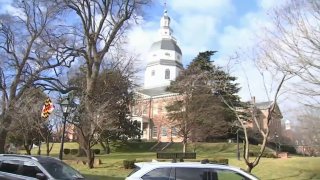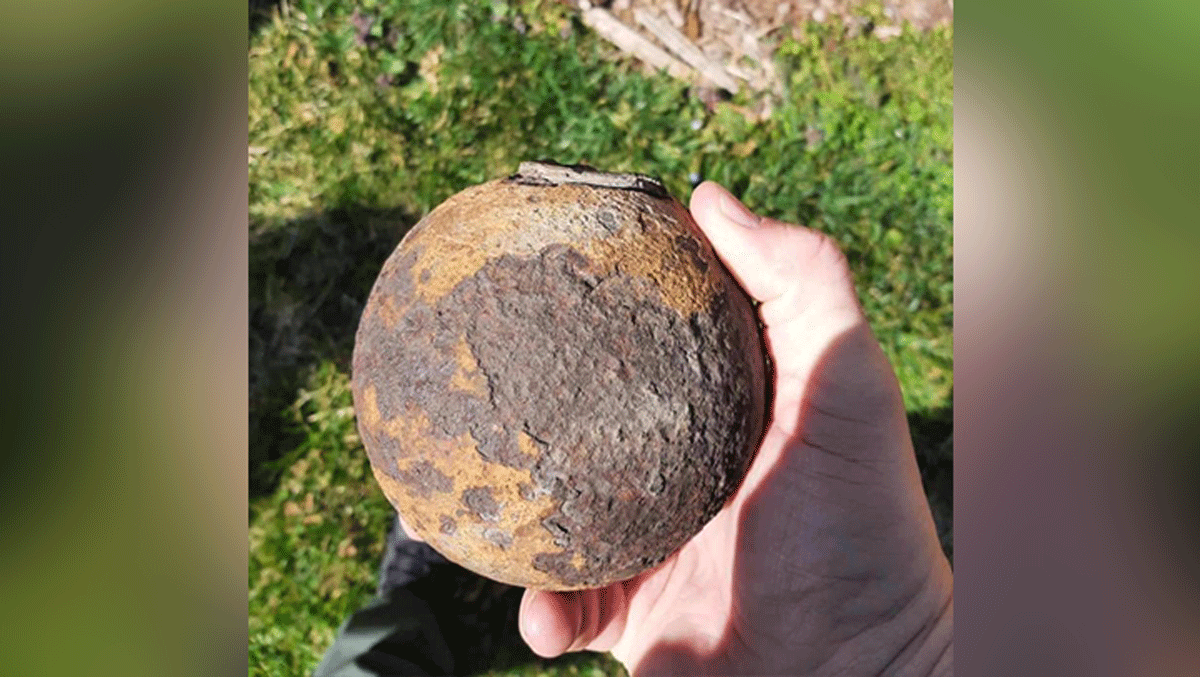
Maryland lawmakers gave final passage on Monday to repeal the state song, a Civil War-era call to arms for the Confederacy against “Northern scum” that refers to President Abraham Lincoln as a despot.
The vote by Maryland's House of Delegates comes after decades of debate over the song titled “Maryland, My Maryland.” It sends the measure to Republican Gov. Larry Hogan.
The governor’s spokesman, Michael Ricci, declined to say whether Hogan would sign the bill, because it has not been formally presented to him, but he noted the governor has said he doesn’t like the song.
The song, set to the traditional seasonal tune of “O, Tannenbaum,” was written as a poem in 1861 by James Ryder Randall. It was adopted as the state song in 1939. Maryland lawmakers have tried to replace it since 1974.
Last year's nationwide protests against racial injustice and police brutality after the death of George Floyd in Minnesota and other police-involved deaths helped to strengthen resolve to finally repeal “Maryland, My Maryland" as the state song.
“There was a feeling of enough is enough,” said Sen. Cheryl Kagan, who sponsored the legislation this year for her third time.
The measure passed the state Senate 45-0. The House passed the bill 95-38 on Monday, as a former Minneapolis police officer went on trial on charges of murder and manslaughter in Floyd's death in May.
Maryland was a border state in 1861, and many of its residents at the time sympathized with Randall’s call to secede from the Union. He wrote it as he was distraught over the shooting of a friend during a melee when Union troops marched through Baltimore on their way to Washington.
The song begins with a hostile reference to Lincoln: “The despot’s heel is on thy shore, Maryland! His torch is at thy temple door, Maryland!”
Previous attempts to change it have stalled over disagreements about finding a replacement. This time, sponsors avoided that debate by repealing it without a replacement.
Opposition to the song has been growing in recent years.
In 2017, the University of Maryland marching band announced it would no longer play “Maryland, My Maryland” before football games. Last year, Pimlico Race Course, home to the Preakness Stakes in Baltimore that’s part of horse racing’s Triple Crown, scrapped its tradition of playing the song before the race.
“This isn’t just about legislation. It’s about a consensus that has developed over the years," Kagan, a Democrat, said.
Other legacies of the Confederacy have been removed in Maryland, and around the nation.
Days after violent protests in Charlottesville, Virginia, in 2017, Maryland officials removed from the Capitol grounds a statue of Roger Taney, the U.S. Supreme Court justice whose 1857 Dred Scott decision upheld slavery and denied citizenship to African-Americans.
Last year, Mississippi adopted a magnolia symbol as it replaced the last state flag in the U.S. with the Confederate battle emblem. Virginia removed from its Capitol the busts and a statue honoring Confederate generals and officials, including a bronze statue of Gen. Robert E. Lee.



